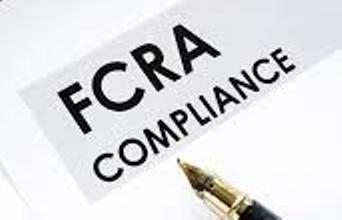

By Sunil Garodia
First publised on 2021-11-10 06:36:34
The Supreme Court came down heavily on NGOs receiving funds from abroad without the donor specifying the purpose for the funds are to be used, as prescribed under Section 8 of the Foreign Contribution Regulation Act (FCRA). It also took the Centre to task for what it said was a dilution of the intent of the FCRA as it did not insist on such a disclosure from the donors before allowing flow of funds to the NGO. The court ordered that henceforth entities will not be allowed to receive foreign funds if the purpose for which they were to be used was not clearly specified.
While on a plain reading of the above section it is not
clear whether the intent of the legislature was to make the donor specify the
exact purpose for which the funds were to be used as the Act says that the NGO "shall utilise such contribution for the purposes for which the
contribution has been received". The main intent of the legislature in
codifying the provisions of Section 8 were mainly to prevent unscrupulous NGOs from
using foreign funds for administrative purposes, which included paying hefty honorariums
to committee members. This has already been restricted in the sub-sections of
Section 8.
To understand this in detail, one has to accept
that NGOs broadly receive two kinds of donations - project-based and general.
When the donation is based on a particular project, the purpose is well-defined
and the use of the funds is restricted to that particular project. But when
donors provide funds in general after looking at the work of the NGO, which
might be working in several fields, it should be upon the NGO to use these funds
as it thinks fit. Solicitor general Tushar Mehta made this point before the
bench.
But the bench was not impressed with the
argument. It said that under Section 8 of the FCRA, the donor must specify the
purpose for which the funds were being given and the receiving entity must use
the funds only for that purpose. It should also maintain separate accounts for
the said funds.
Since the apex court has read the section in a
particular way, it is now upon the NGOs to ask donors to clearly specify how
the funds are to be used and upon the Centre to satisfy itself that the
provisions of Section 8 of the FCRA are met before allowing the funds to flow
in the accounts of the NGO. The NGOs must also comply with the direction of the
court and maintain separate accounts for different activities they carry out,
which many are already doing.
As for the Centre, it has been after several NGOs
and has cancelled the FCRA licences of many NGOs in the recent past. It has
also amended the Act to streamline it and also make it difficult for many entities
to get foreign funding. But on this particular issue, it has shown laxity because
political parties also receive foreign donations and it will be difficult for
them to get donors to specify the purpose for which the funds will be used, as
also to maintain separate accounts. But now that the Supreme Court has ruled
thus, the political parties will also have to fall in line.











